
 |
DYNASTIC DEMOCRACY
Little space for party workersMamtha Sharma in Bengaluru
Shockingly, none of the parties has bothered to worry about the scores of ordinary workers who have served them diligently. They are rarely given the opportunity which the leaders of political parties are so quick to bestow on their close relatives. This explains how the JDS leader, for example, first successfully managed to promote his two sons, H D Kumaraswamy and H D Revanna . While Kumaraswamy is the state chief minister ,his brother holds the PWD ministry. This is not all. D C Tammanna, father in law of Deve Gowda’s youngest son, Dr Ramesh, is the transport minister.
Witness, therefore, the brazen manner in which they have been trying to defend dynastic politics. When questioned recently , Rahul Gandhi, Congress president , for example, had no answer to the charge. Instead, he sought to deflect it by maintaining that the Congress alone should not be blamed for it. After all, as he put it , virtually every party follows the trend. A lawyer’s son, has to study law just as a businessman’s ward must learn the ropes from the ground level before assuming charge. This is not so with the politicians. Without going through the different levels of party work ,from the ground up, the politicians’ close relatives straightaway are given the top responsibility. Other political leaders went so far as to claim that they had the full support of the party MLAs and senior leaders when it came to inducting their close relatives. They , however, forget to mention, albeit conveniently , that most of the MLAs ,in most cases , are also related to the family in one way or the other. Some leaders try to defend the prevalent system ,arguing that just as a businessman’s son or daughter takes charge of the father’s business or, for that matter, a lawyer or a doctor’s son follows his father’s footsteps, a politician’s kin too had the right to do so. The argument, however, is flimsy especially as in business or any other profession, the children of those concerned have to go through the mill. A lawyer’s son, for example, has to study law just as a businessman’s ward must learn the ropes from the ground level before assuming charge. This is not so with the politicians. Without going through the different levels of party work ,from the ground up, the politicians’ close relatives straightaway are given the top responsibility. Rabadi Devi in Bihar, for instance, was handed over the chief minister’s mantle straightaway by husband and the then chief minister, Laloo Yadav, in 1997 , just before going to jail. None in the party questioned him. Or dared do so!. Even though , at that time she was just a housewife and had no clue to politics. Take the example of Nikhil . He got the Mandya ticket purely because he was Gowda’s grandson. A rookie who was interested more in a film career, he was thrust into politics out of the blue. The clan’s argument that eight MLAs of Mandya were keen to see the family bring Nikhil into politics ,are too specious. In Prajwal’s case , his father has been grooming him by making him look after his assembly constituency, Holenarsipura. Subramnayam , a political analyst, however, argues that the politicians may bring their kith or kin into politics but ultimately , they have to win elections. To that extent, he believes that the politician should not be accused of promoting dynastic politics if their wards come into the scene by getting elected. After all, they would have earned their spurs. The politicians also often quote the abortive attempt made by Infosys former ceo, Nandan Nilekeni ,and ex chief financial officer, Balakrishnan, into politics, to make their point. Despite having proved themselves in the corporate world, the two could not win in the last Parliamentary elections .While Balakrishnan who contested the 2014 LS polls as an Independent fared miserably, Nilekeni, even after fighting on a Congress ticket, lost to the late Ananth Kumar from Bengaluru South in the same year.
These defeats further emboldened the politicians who began asserting their right to introduce their kith and kin into politics with greater vigour. What they forget ,however, is that it is easy for political parties to splurge money during elections which an individual cannot do. Or, those who believe in clean politics, as did Balakrishnan and Nilekeni, cannot do ; refuse to do. The question that remains though is: how many ordinary workers are given tickets by the political bosses.The kith and kin of the parties get these tickets easily, not others. Take the example of how three generations of the Nehru family , namely, Jawaharlal Nehru, Indira Gandhi and Rajiv Gandhi, have held the post of prime minister. To make matters worse, today, Rajiv’s son, Rahul ,is making a determined bid to grab the post, having also roped in sister, Priyanka, into the party for good measure. For the ordinary workers of political parties, the chances of getting a ticket to the assembly or Parliament are well nigh impossible, unless , of course, they are from the party bosses’ family. The situation will remain like this as dynastic democracy gets precedence over fair play in the country’s political families. What is more ,she was appointed as general secretary of the All India Congress Committee , in charge of eastern Uttar Pradesh. That too without any experience of party work , or doing the small jobs that many of her unfortunate partymen have to perform before they catch the eye of the political bosses. Mind you, there were no protests from any functionary of the party. Surely, it would have some leaders with spine, one would think. The answer to this doubt ,however, is easily found when one goes back to the time when Priyanka’s son was born. According to available information, the then Congress spokesperson, Ajit Jogi, who has now floated his own outfit, could not contain his joy as he went about distributing sweets, declaring that “our future leader has arrived.” That says a lot about not only the Congress culture but that of virtually every other party ! If this was not enough, Rajiv’s wife, Sonia Gandhi , held the post of the Congress president for a sizeable number of years, with several well known faces in the party, preferring to act as sycophants,much to the glee of the family.
Dynastic politics, incidentally, has today spread across the country with the late Sheikh Abdullah family perpetuating it through Farooq Abdullah and his son, Omar, in Jammu and Kashmir,followed by the late Mufti Mohammed Sayyed and his daughter, Mehbooba Mufti. All of them have held the reins of the state some time or the other. The practice has not left the south untainted too where the DMK’s Karunanidhi promoted his son, Stalin and daughter, Kanimozhi. If one goes to Maharashtra, there are enough examples of dynastic politics in Sharad Pawar’s NCP , the local unit of the Congress itself ,not to speak of the Shiv Sena. Significantly, the BJP which is quick to lash out at other parties for promoting family members , cannot absolve itself of the charges too. Maneka Gandhi and her son, Varun Gandhi, are example of dynastic politics in the party just as Yashwant Sinha’s son ,Jayant Sinha, became a minister in the Modi government. Likewise, Dunshyant Singh, son of former Rajasthan chief minister Vasundhara Raje, was the sitting MP from Dhaulpur. Vasundhara’s mother , the late Vijayraje Scindia too was an MP .Her brother, the late Madhav Rao Scindia ,was a minister in the Congress government at the centre and whose son ,Jyotiraditya, is a senior member of the national party now. In short, for the ordinary workers of political parties, the chances of getting a ticket to the assembly or Parliament are well nigh impossible, unless , of course, they are from the party bosses’ family. The situation will remain like this as dynastic democracy gets precedence over fair play in the country’s political families. |
|


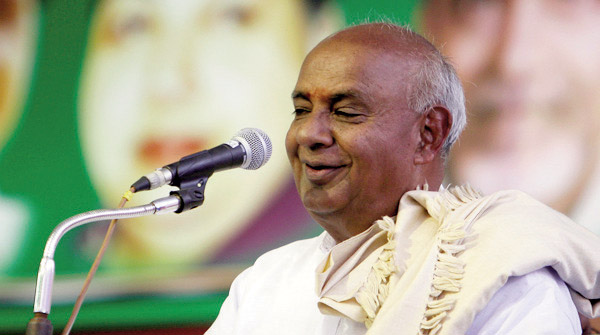 HD Deve Gowda
HD Deve Gowda
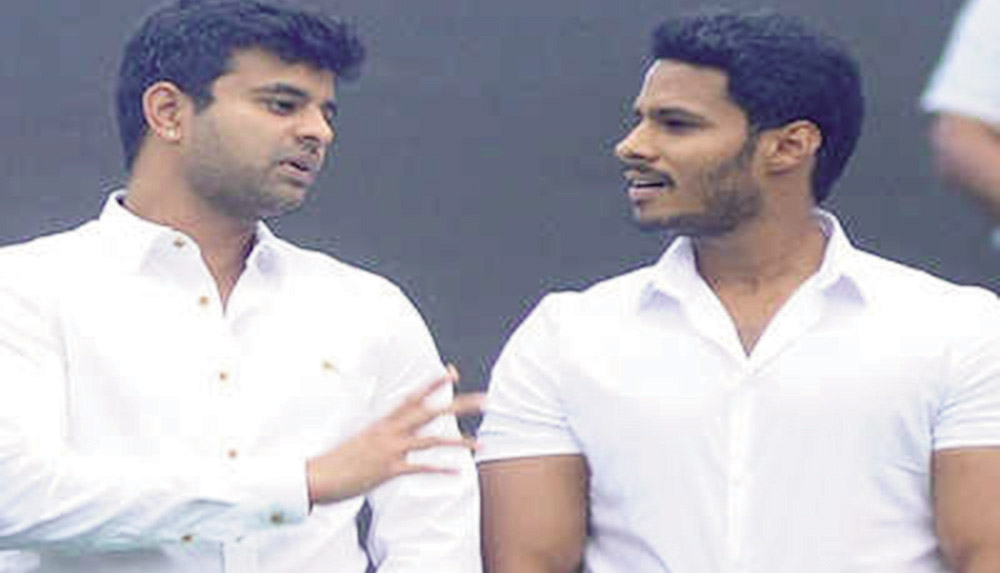 Nikhil Gowda and Prajwal Revanna
Nikhil Gowda and Prajwal Revanna
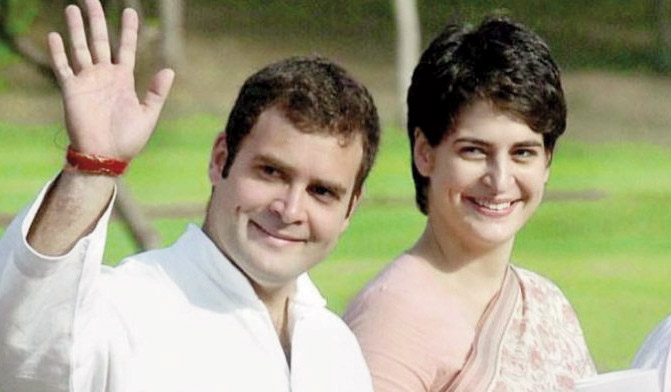
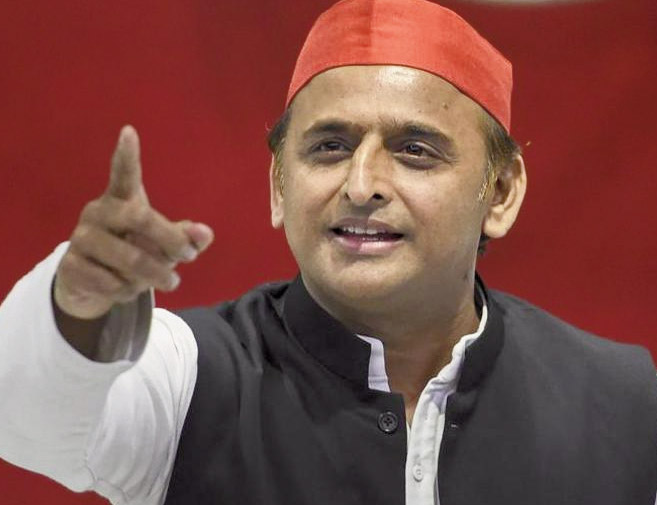 Akhilesh Yadav
Akhilesh Yadav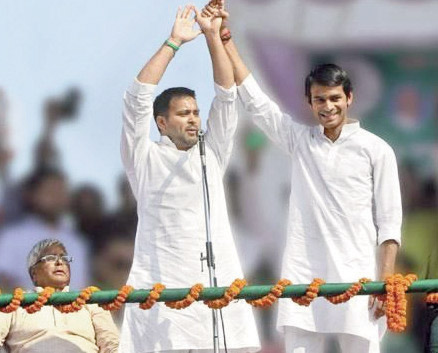 Tej Pratap and Tejaswi
Tej Pratap and Tejaswi